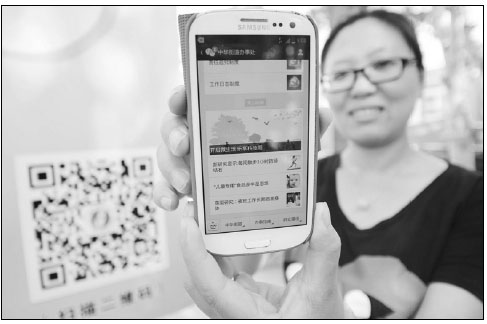The immense popularity of the social media app WeChat has brought increasing intellectual property challenges, according to a report released by the developer last week.
The app, developed by Chinese Internet giant Tencent, has attracted 650 million users, including more than 10 million public accounts, which is where most of the IP issues arise, the report says.
The WeChat team received more than 22,000 complaints about public accounts in the past year, with 13,000 of them concerning IP issues. At the same time, they had 12,000 complaints about individual accounts, of which about 200 were about IP.
Trademark infringements accounted for the majority of complaints, patent disputes the least. About 90 percent of the trademark disputes were about unauthorized use.
WeChat launched a trademark protection mechanism last year, which involves about 40 trademark right owners that have more than 100 brands, including well-known international brands such as Louis Vuitton and Chanel.
The company handled more than 17,000 complaints about counterfeit goods last year, 7,400 of which were confirmed by trademark owners. More than 7,000 WeChat accounts selling fake goods were shut down.
In the copyright area, the report said that 61 percent of complaints about public accounts involved written works, while 67 percent of complaints on individual accounts were about photography.
An originality declaration function was introduced on Jan 23, 2015, allowing authors to set limitations on sharing. The system automatically checks the originality of submitted content by comparing it with prior works that have already passed the examination.

The mechanism has recorded more than 5 million authorized shares, which means "5 million additional chances for more users to read high-quality articles", according to the report.
Zhang Ping, a law professor at Peking University, said that WeChat's IP protection system, combining examination and remedies, is "an effective solution".
When WeChat's IP team confirms an infringement, it will block or erase the infringing content and the publisher will be given a warning or in more severe cases have restrictions placed on the account. In some cases the WeChat account will be canceled completely.
"We are committed to active copyright protection now rather than passive protection," said Jiang Bo, head of Tencent's legal affairs department, when the report was released.
He added that the company is considering the expansion of copyright protection to audio and video material, and is inviting more brands to join the trademark protection platform.
As the report acknowledged, there is still "huge room for improvement". It said IP protection is challenging because the Internet has made IP right violations faster, increased their extent and made it more difficult to eliminate their influence.
|

A women from Handan, Hebei province, shows a WeChat public account on her smartphone that publishes articles about science knowledge. Hao Qunying / For China Daily
|
(China Daily 01/20/2016 page17)
